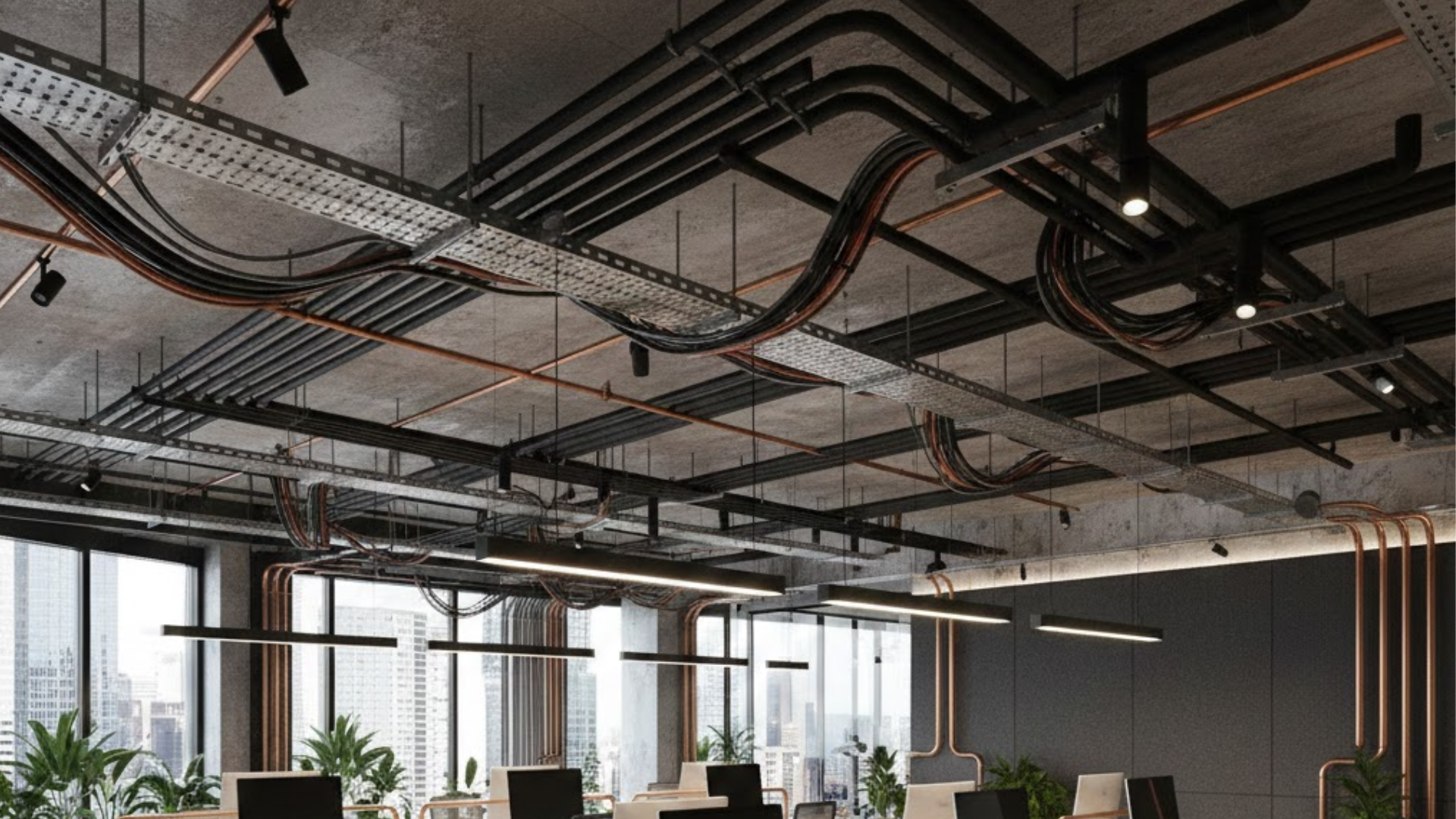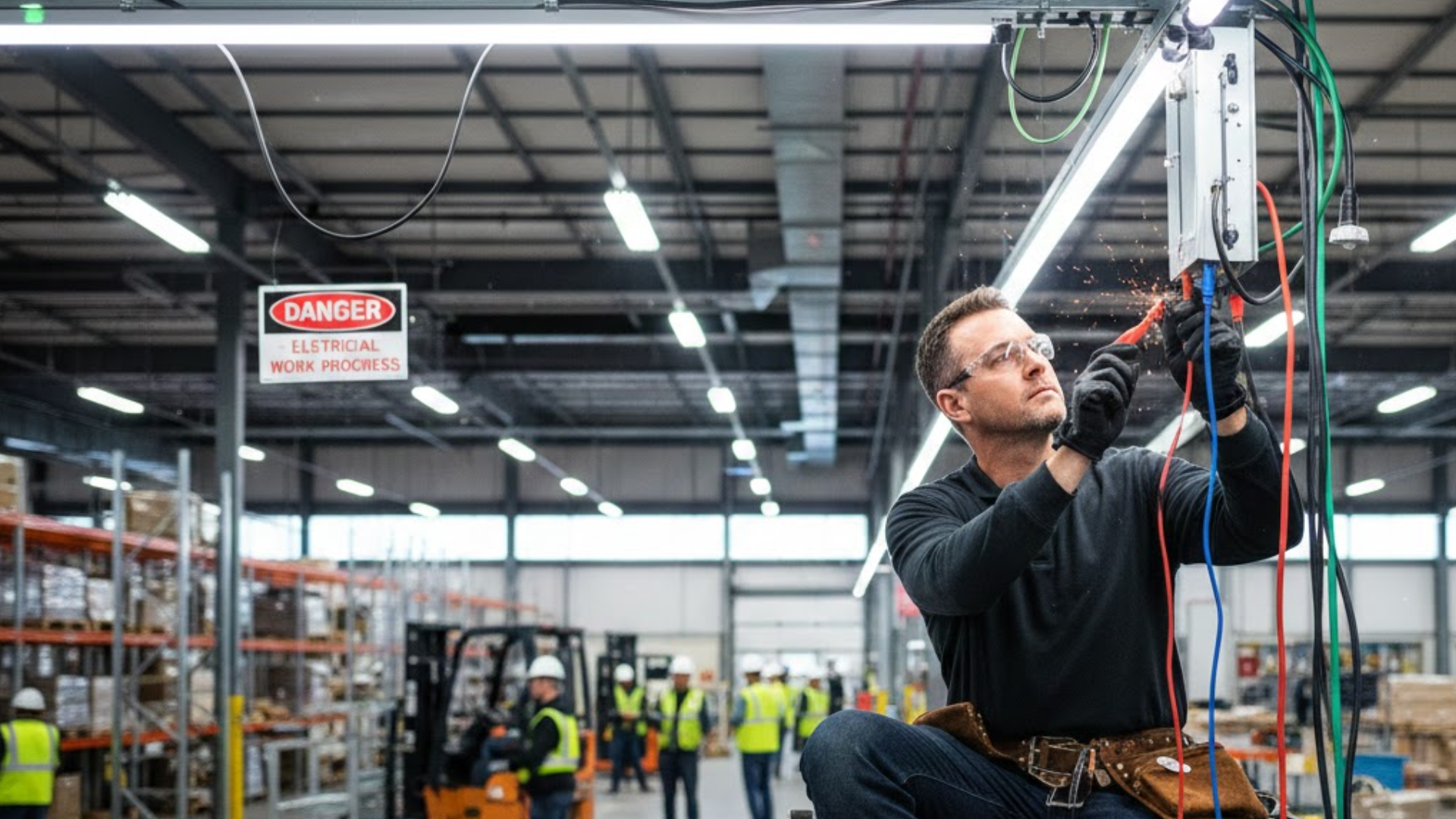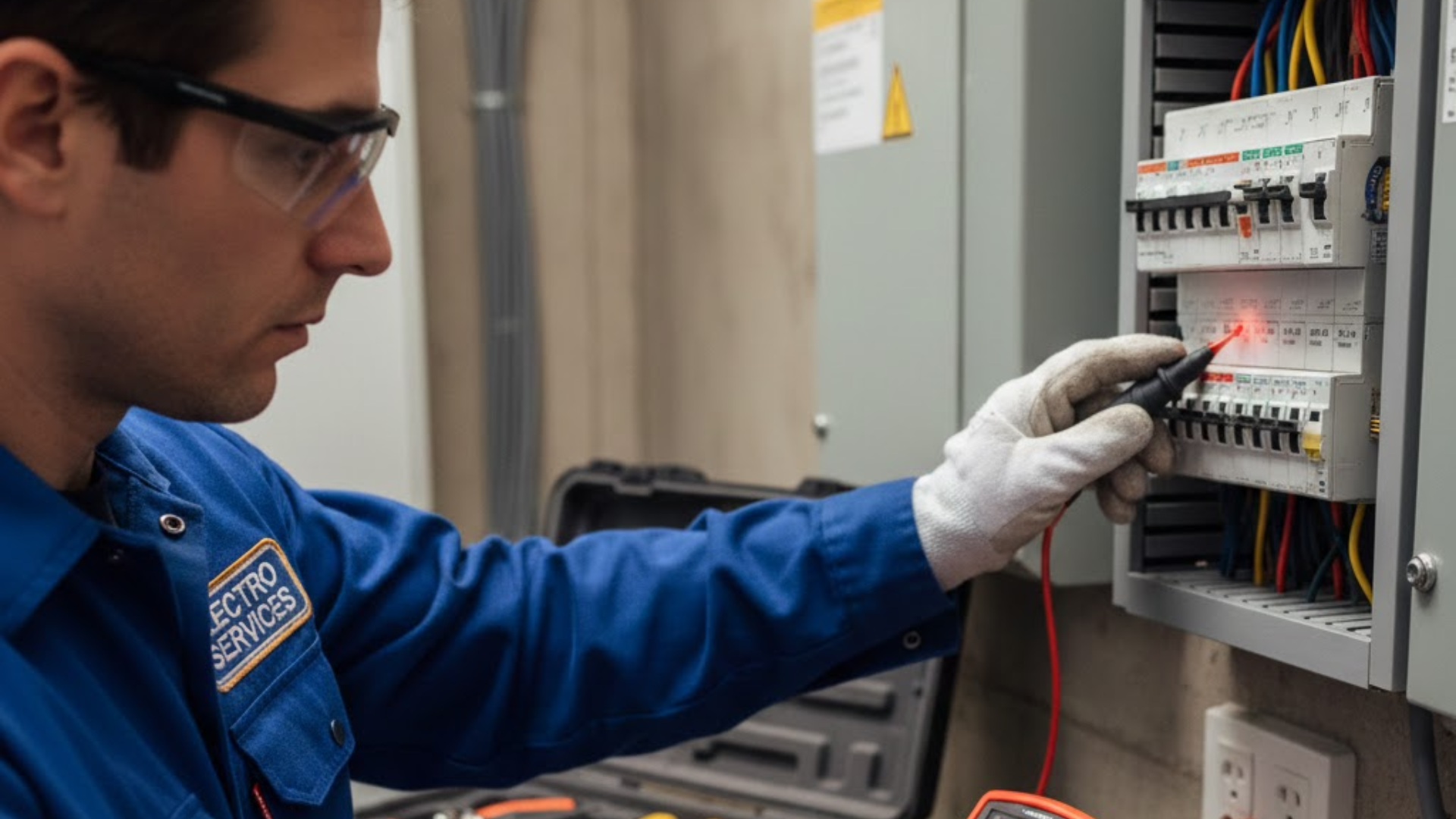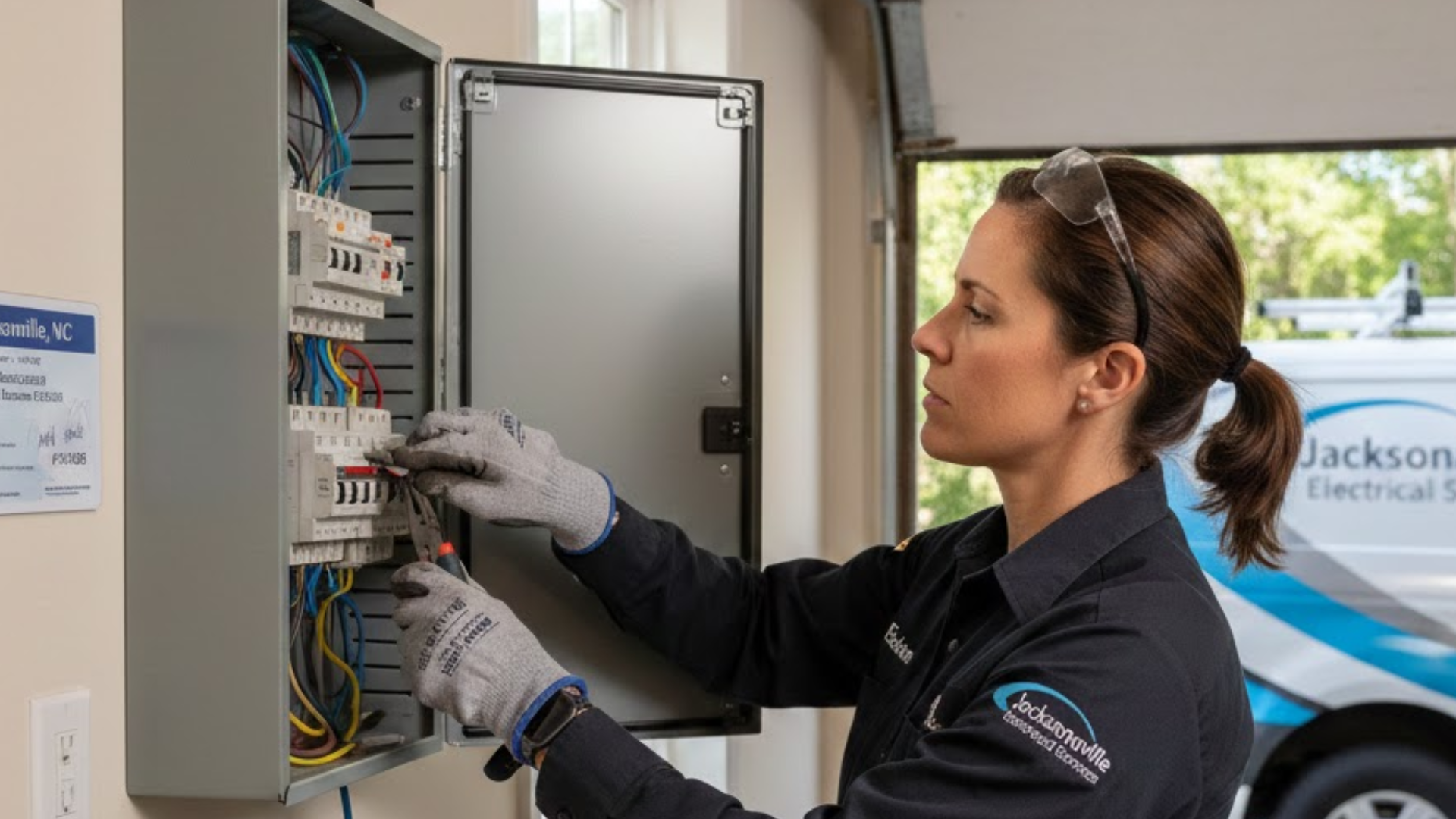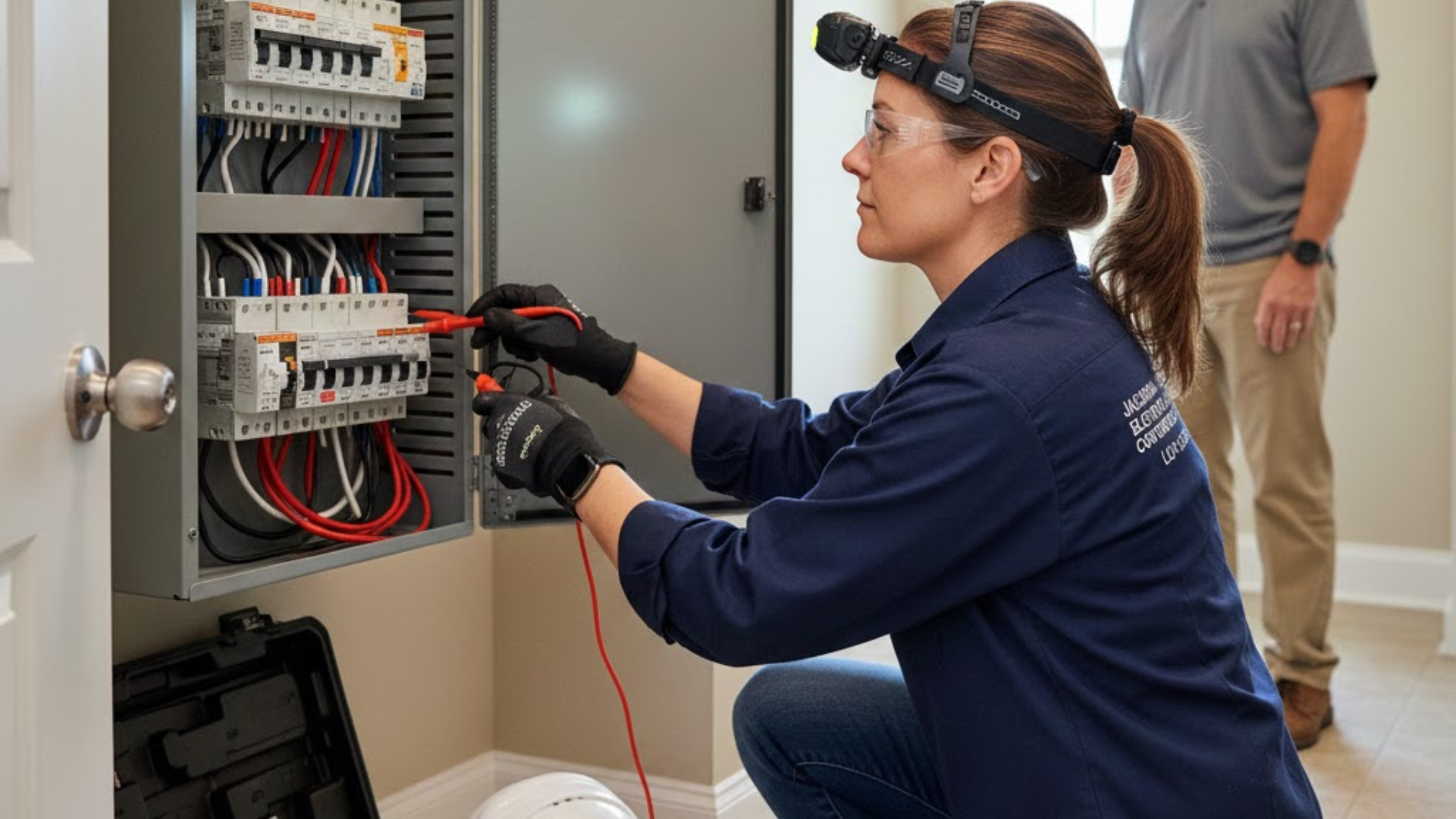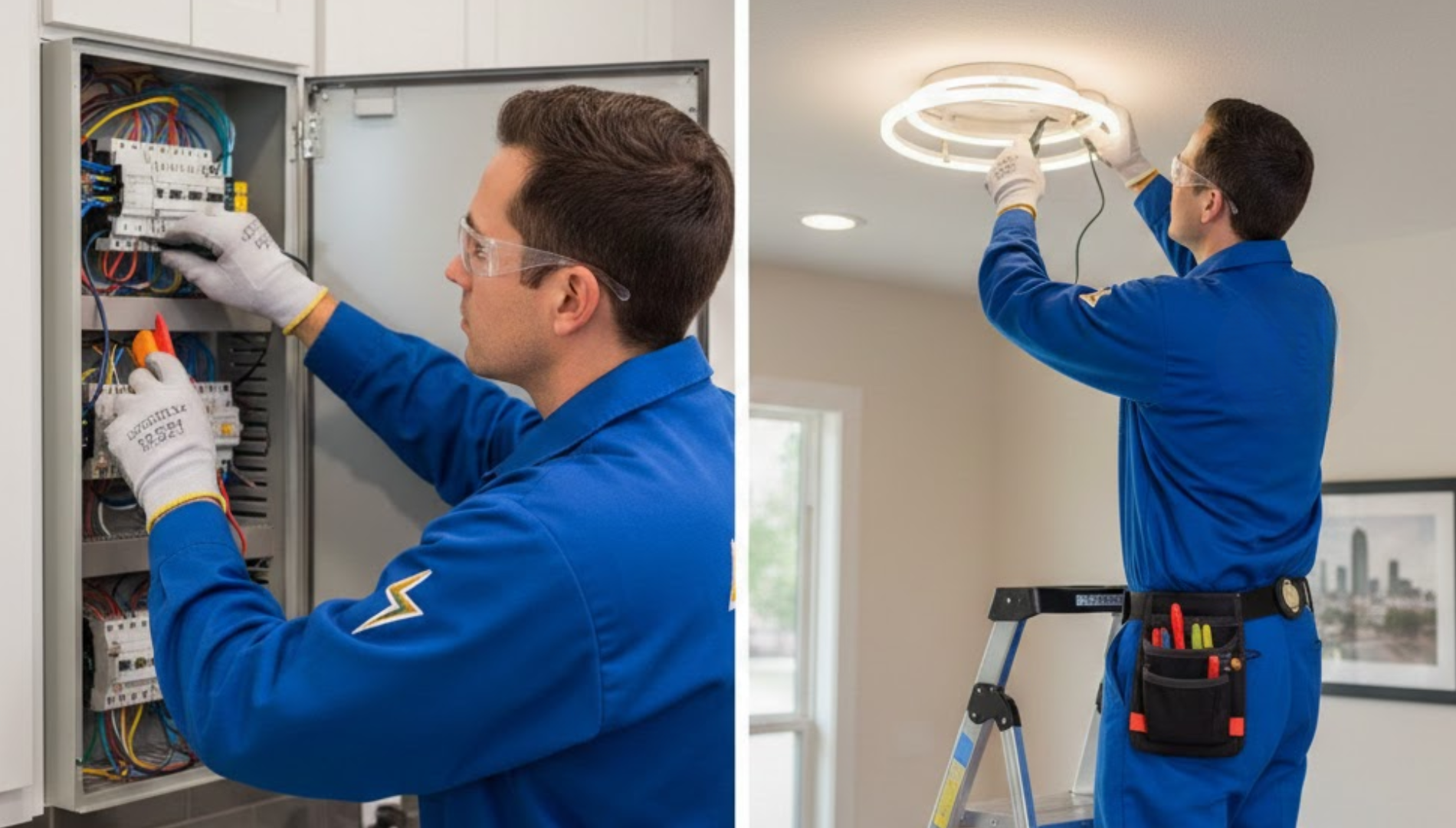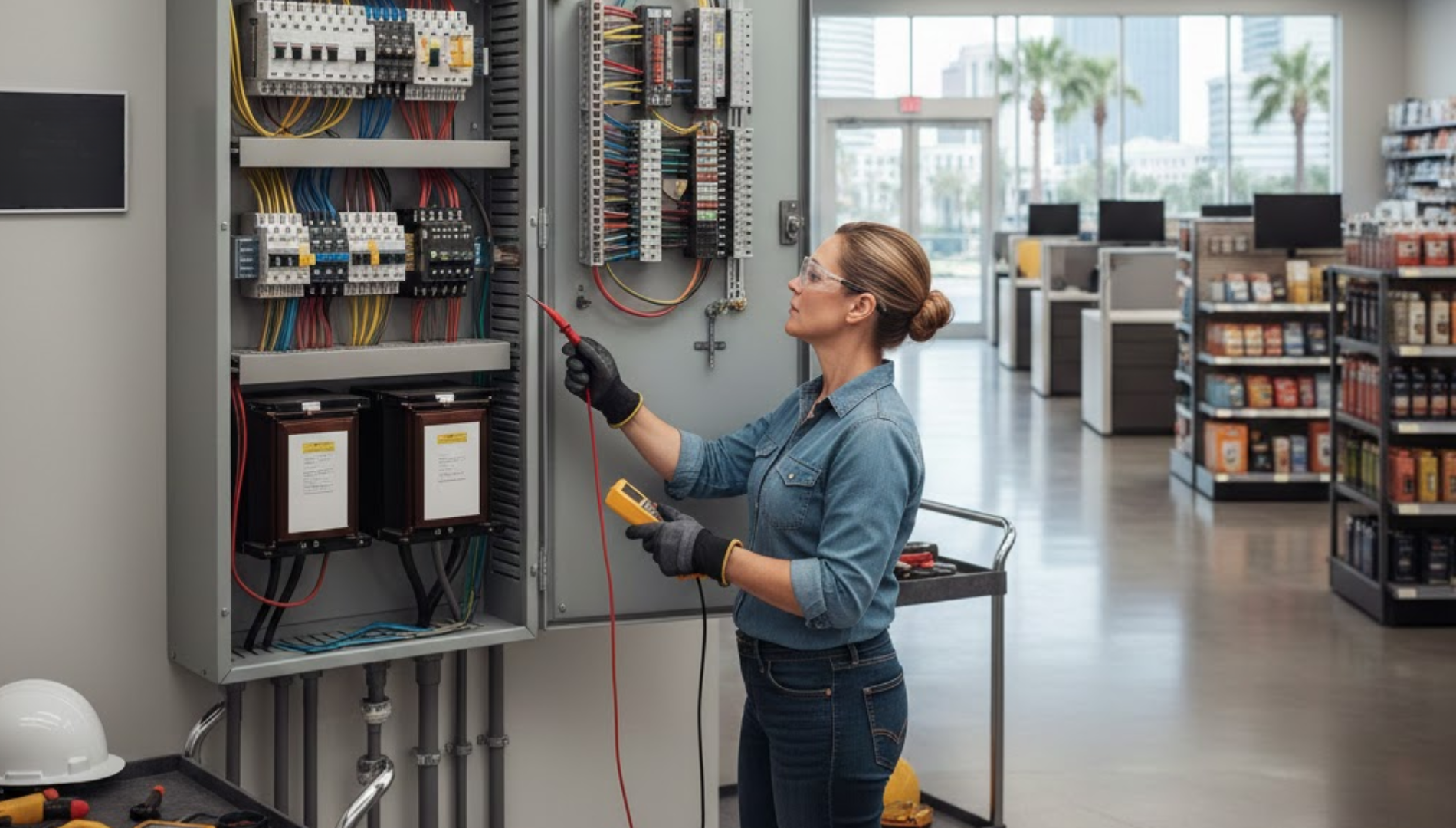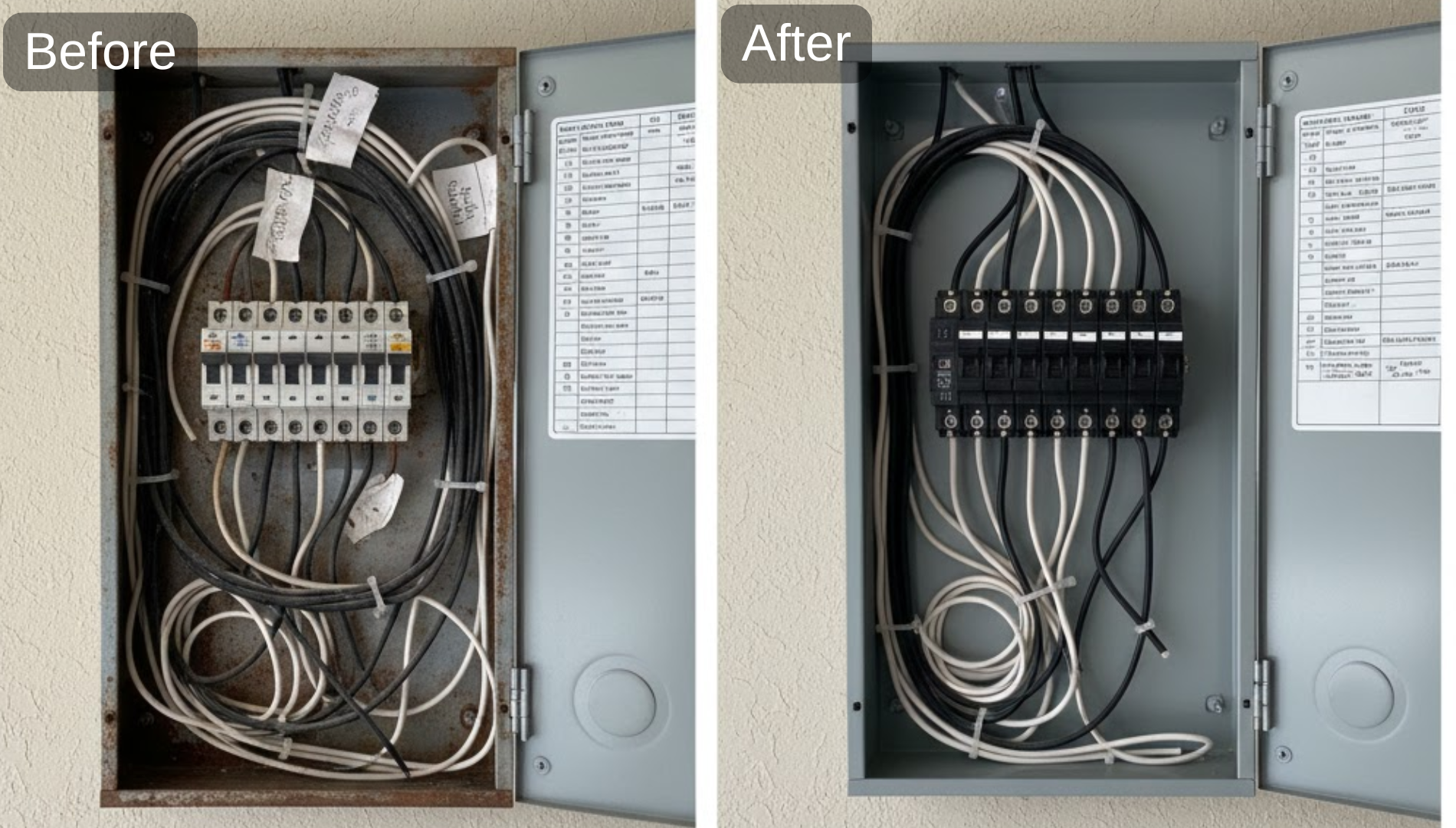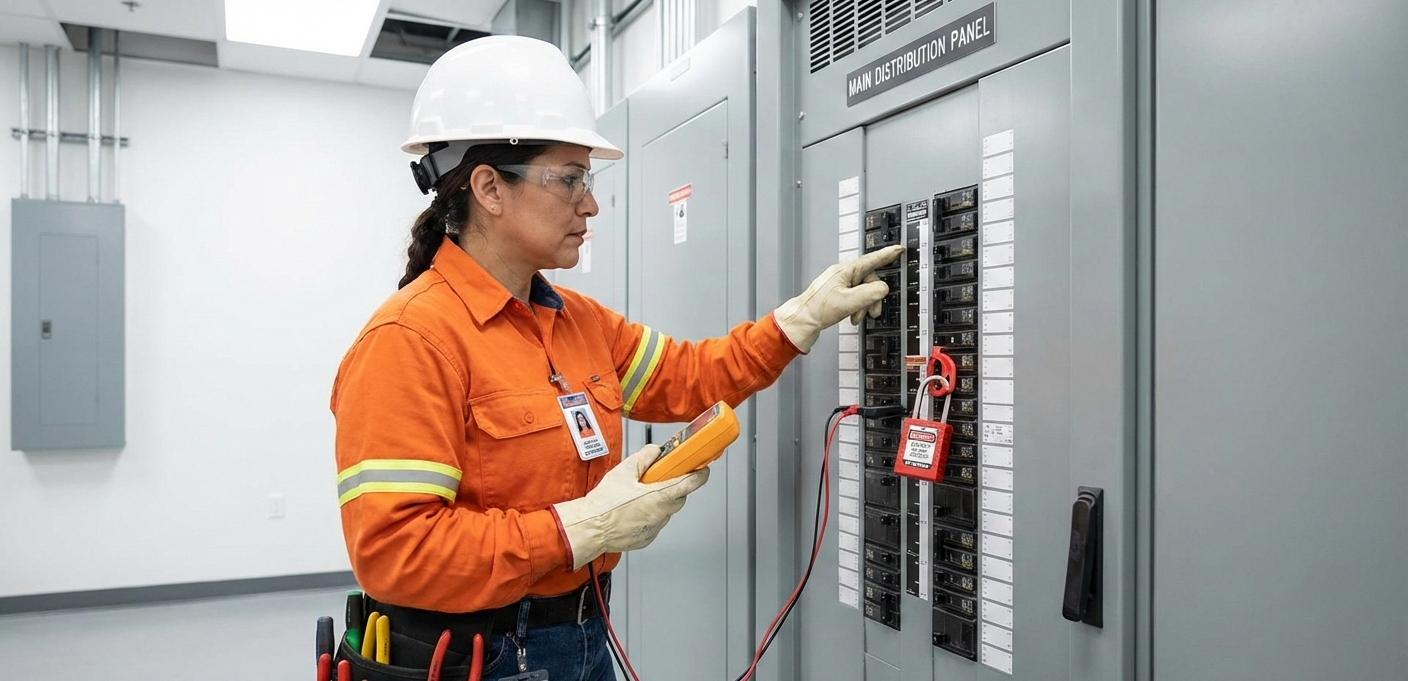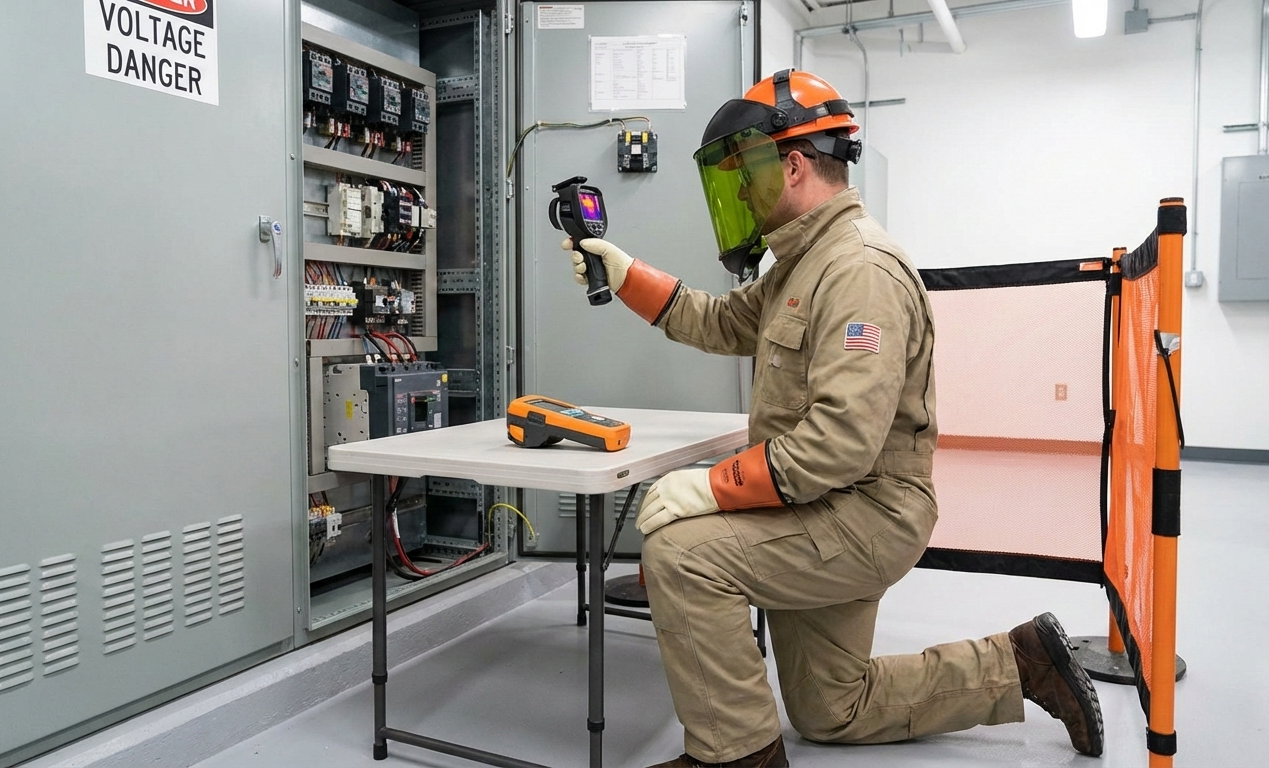Why Quality Matters In Commercial Electrical Installation
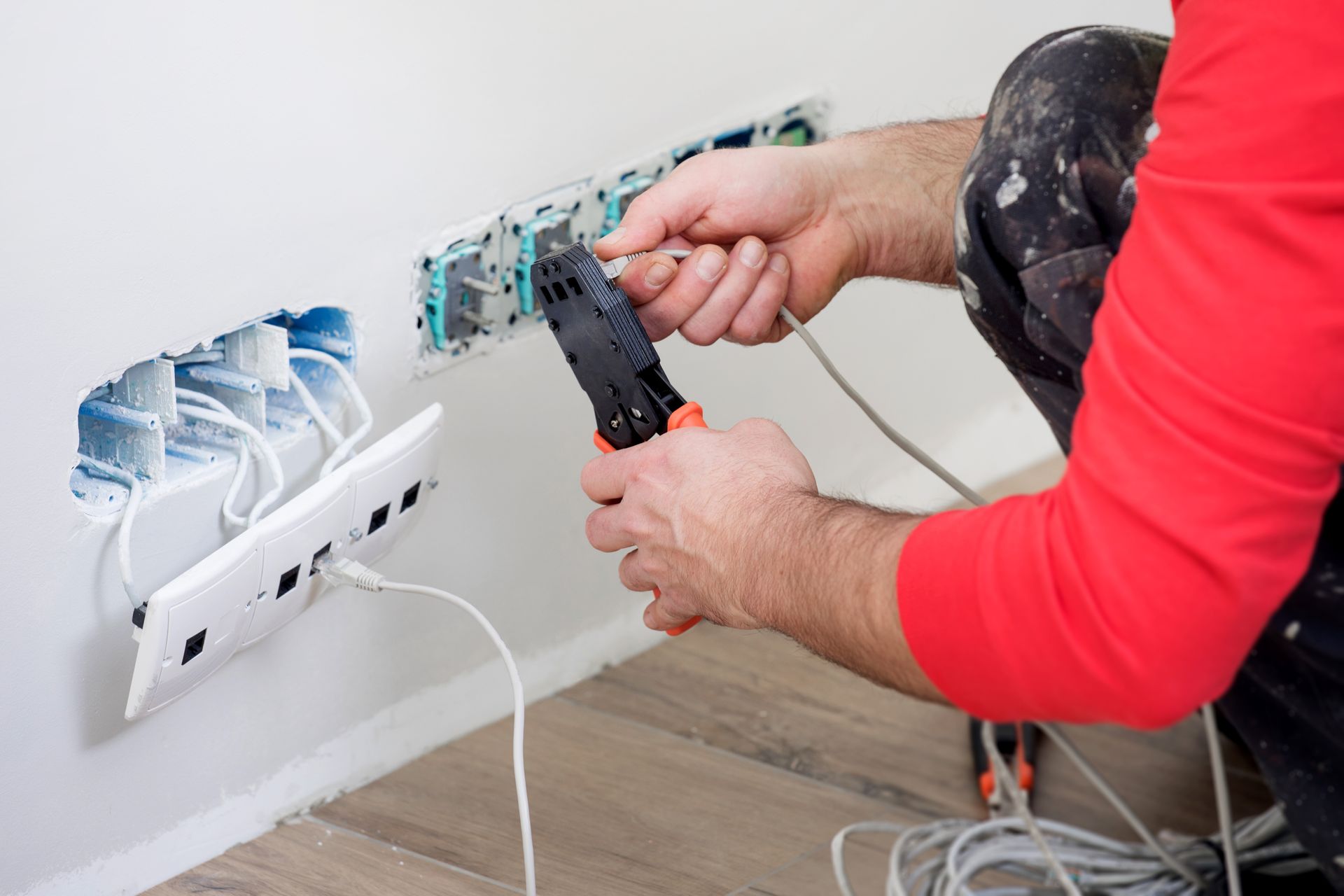
When it comes to commercial electrical installation, quality isn't just a nice-to-have, it's a business necessity. A building's electrical system is the invisible backbone that powers every operation: lighting that keeps employees productive, HVAC systems that maintain comfortable environments, elevators that move people efficiently, and digital infrastructure that connects your business to the world.
Cutting corners on commercial electrical installation creates risks that ripple through every aspect of your operation, costly downtime, dangerous conditions, and disruptions that can devastate your bottom line. Understanding why quality matters requires examining the complex design considerations, the critical role of safety standards, and how electrical knowledge impacts your daily operations.
What Are the Design Considerations of Commercial Electrical Installation?
Designing a commercial electrical installation is vastly different from wiring a residential space. Commercial environments demand sophisticated systems that can support higher loads, accommodate diverse equipment, and deliver unwavering reliability.
Poor design doesn't just cause inconvenience, it creates efficiency problems, frequent failures, and potentially catastrophic fire hazards.
1. Load Assessment and Capacity Planning
Consider the electrical demands of a typical commercial building: hundreds of computers running simultaneously, powerful HVAC units cycling throughout the day, elevators carrying people between floors, sophisticated security systems operating around the clock, and heavy-duty machinery supporting core business functions.
Professional electrical engineers conducting commercial electrical installation must meticulously calculate total load requirements and design circuits that distribute power evenly across all systems.
Experienced contractors like Nash Electric LLC understand that when circuits become overloaded, they overheat, damaging both the electrical infrastructure and the expensive equipment connected to it. This isn't just about preventing inconvenience; it's about protecting significant investments in technology and machinery.
2. Scalability and Future-Proofing Your Investment
Successful businesses evolve constantly. Teams expand, new equipment arrives, technology upgrades become necessary. Quality commercial electrical installation anticipates this growth by incorporating spare capacity in switchboards, conduits, and distribution systems from day one.
This forward-thinking approach prevents expensive rework when your business needs change. Instead of tearing out walls and disrupting operations for major electrical upgrades, well-planned systems accommodate growth seamlessly. It's an investment that pays dividends for years to come.
3. Energy Efficiency That Impacts Your Bottom Line
Modern commercial electrical installation emphasizes sustainability and cost control. Energy-efficient systems don't just reduce environmental impact, they deliver measurable savings on monthly utility bills.
Features like LED lighting systems, intelligent control systems that adjust power based on occupancy, and high-efficiency transformers optimize energy consumption while maintaining peak performance. When properly implemented, these systems can reduce energy costs by 20-40% compared to older installations.
4. Compliance with Building Layout and Operational Needs
Every commercial electrical installation must integrate seamlessly with your building's specific design and business requirements. Hospitals require backup generators and isolated power supplies for life-critical areas. Data centers demand uninterrupted power supply (UPS) systems that prevent even milliseconds of downtime. Retail spaces need strategically distributed lighting and accessible power outlets that enhance customer experience.
Each commercial property presents unique electrical challenges, and quality design ensures those needs are met safely, efficiently, and in compliance with industry standards.
Why Are Electrical Standards Crucial for Safe Commercial Installations?
Standards form the foundation of safe and reliable commercial electrical installation. They exist to protect people, preserve property, and maintain business operations. Ignoring these standards doesn't just create risk, it exposes businesses to liability, financial loss, and potential tragedy.
1. Preventing Electrical Hazards That Threaten Lives and Property
Faulty wiring or substandard components in commercial electrical installation can cause electric shocks, devastating fires, or catastrophic equipment failure. Adhering to established electrical codes and regulations ensures installations meet rigorous safety benchmarks for insulation, grounding, circuit protection, and fault tolerance.
These aren't arbitrary rules, they're guidelines developed through decades of experience and tragedy prevention. Following them protects everyone who enters your building.
2. Consistency and Reliability Across Your Operations
Standards provide a universal framework that all electrical professionals follow during commercial electrical installation. This consistency ensures installations are reliable and compatible with future upgrades or maintenance needs.
Using standardized circuit breakers, cabling, and connection methods makes troubleshooting straightforward and component replacement predictable. There's no guesswork when problems arise, just systematic solutions that minimize downtime.
3. Meeting Legal and Insurance Requirements
Commercial electrical installation must comply with local and national electrical codes to receive occupancy permits and maintain insurance coverage. Non-compliance isn't just a technical issue, it's a business risk.
If an accident occurs and investigators discover your electrical system doesn't meet standards, your business may face legal consequences, liability claims, or denied insurance payouts. The financial impact can be devastating, far exceeding the cost of proper installation from the beginning.
4. Protecting Business Continuity and Revenue
Power disruptions in commercial settings halt operations immediately, leading to direct financial losses. Quality commercial electrical installation that follows established standards dramatically reduces the risk of downtime caused by electrical faults.
In industries like healthcare, finance, or manufacturing, uninterrupted power isn't about convenience, it's mission-critical. Patients depend on life-support systems, financial transactions must process without interruption, and production lines can't afford unexpected shutdowns.
The Importance of Understanding Commercial Electrical Installation in Your Business Life
Even if you're not an electrician, understanding the fundamentals of commercial electrical installation and maintenance provides practical value that impacts your business success and personal safety.
1. Personal and Workplace Safety Awareness
Understanding how electrical systems function helps you recognize warning signs before they become dangerous situations. Flickering lights, overloaded outlets, frequently tripping breakers, or burning smells indicate problems that require immediate attention.
Addressing these issues early prevents hazards and protects everyone in your workplace. This knowledge is particularly valuable for business owners and facility managers who bear responsibility for creating safe work environments.
For comprehensive guidance on identifying and preventing electrical hazards, our article "Ensure Safety With Commercial Electrical Installation Tips" provides detailed strategies for maintaining secure electrical systems in commercial settings.
2. Making Informed Decisions About Electrical Contractors
When hiring professionals for commercial electrical installation, understanding the essentials empowers you to ask informed questions and ensure quality work. Reputable contractors like Nash Electric LLC welcome detailed discussions about their approach, safety protocols, and compliance standards because they understand that educated clients make the best long-term partners.
You'll recognize when contractors cut corners, propose inadequate solutions, or charge for unnecessary services. This knowledge protects your business from poor workmanship that creates long-term problems and unexpected costs. It also helps you identify contractors who truly understand commercial electrical requirements versus those who primarily work on residential projects.
3. Achieving Long-Term Cost Savings
Regular maintenance and understanding electrical efficiency can deliver significant savings over time. Knowing when to replace outdated wiring, how to implement energy-efficient systems, and which upgrades provide the best return on investment can reduce long-term expenses dramatically.
Commercial electrical installation represents a major investment, and informed decision-making ensures you maximize the value of that investment for years to come.
4. Managing Your Business's Electrical Dependencies
From basic lighting to complex server systems, electricity powers virtually every aspect of modern business operations. Having functional knowledge of commercial electrical installation makes you more self-reliant and better equipped to handle minor issues, or recognize when professional expertise is essential.
This understanding also helps with emergency planning, system redundancy decisions, and technology integration planning that supports business growth.
Conclusion: Quality Commercial Electrical Installation Is Non-Negotiable
Quality in commercial electrical installation isn't optional, it's fundamental to business success. Well-designed systems ensure safety, maximize efficiency, and deliver the reliability your operations demand while preparing your facility for future growth and technological advancement.
Adhering to established standards protects your business from electrical hazards, legal risks, and costly operational downtime. While certified professionals handle the technical implementation, understanding the basics of commercial electrical installation helps business owners stay safe, make informed decisions, and manage costs effectively.
The bottom line is clear: cutting corners on commercial electrical installation isn't worth the risk. Quality installation keeps your operations running smoothly, your people safe, and your business positioned for long-term success. Whether you're planning a new facility or upgrading existing systems, partnering with experienced professionals like Nash Electric LLC ensures your electrical infrastructure supports your business goals for years to come. Get professional advice now.

